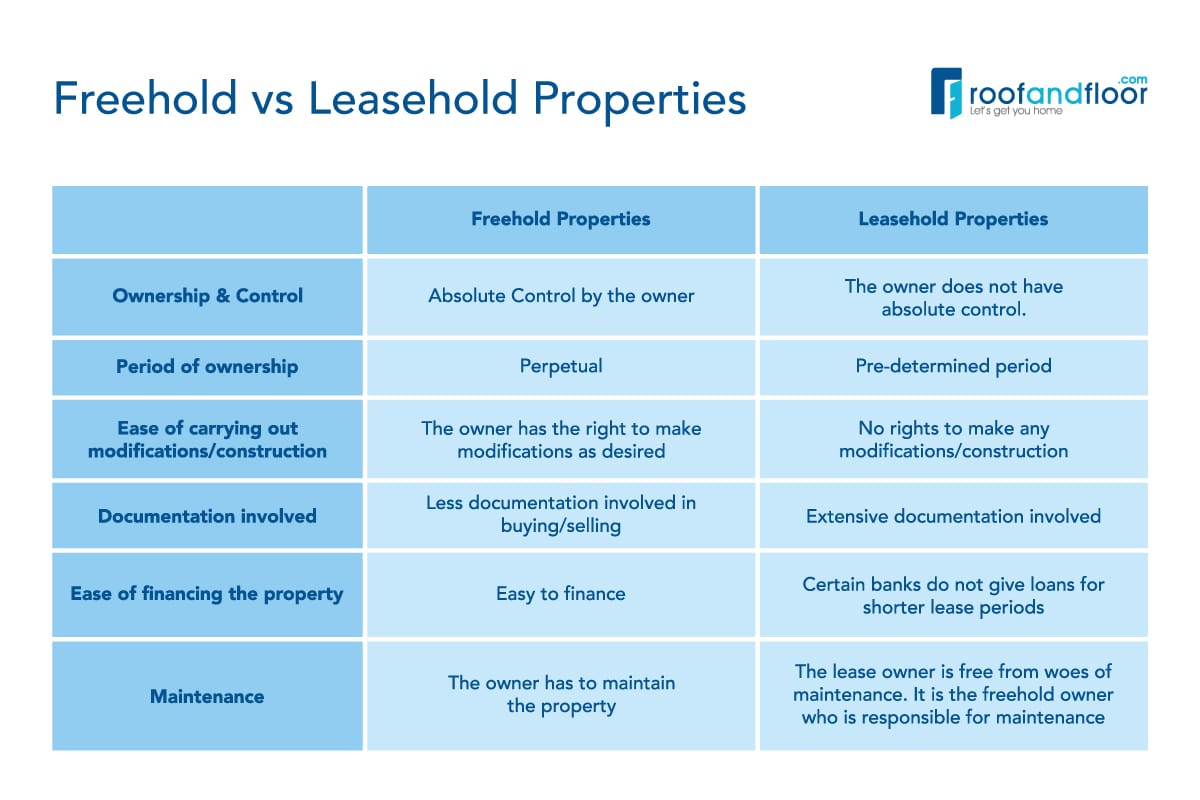The real estate sector is laden with specific terms, procedures, legalese, and rules which may seem difficult for the common man.
It can be perplexing, and buying a house can become a stressful experience. Recently, Avinash Naik wrote to us asking us about the difference between freehold and leasehold properties.
Freehold and Leasehold properties are two terms that are used frequently in real estate parlance and the main difference between the two is in the ownership and control that one holds over the property.
Freehold properties
In freehold property, an owner holds complete control over the land/property to which he/she holds the title. This control is absolute, enabling the owner to carry out renovations, modifications to the property or construct anything on the land, subject to current rules and regulations.
The owner also has the right to sell or rent the property at any time. As the owner has absolute right over the property, freehold properties are priced higher. But if this might be of some relief to you – the extent of paperwork involved in a freehold property transaction is much lesser.
To put it in a nutshell, a freehold property is free from the hold of any sort, hence the name.
Leasehold properties
Here, the owner does not have absolute right and control over the property. The owner only gets the right to use the property for a pre-determined number of years, against the payment of a certain fee. Unlike a freehold property, the owner does not have the right to carry out any modifications/renovation or construction to the property without the express consent of the original freehold owner.
At the end of the lease period, the property has to be given back to the owner of the property or the lease is extended on the payment of the lease renewal fee.
The lease period could last anywhere between 30-99 years. This matters a lot as it determines the value of the property. Longer lease periods are preferred when it comes to financing leasehold properties. As the owner does not have absolute rights over the property, the cost of a leasehold property is lesser; however, it involves more documentation.
For your easy comprehension, we present the differences in a tabular format:
Freehold properties in India
In most of the Indian states, properties are developed on freehold land. However, in metropolitan areas like Noida and Navi Mumbai, the government owns the land, and it is given on lease to developers.





